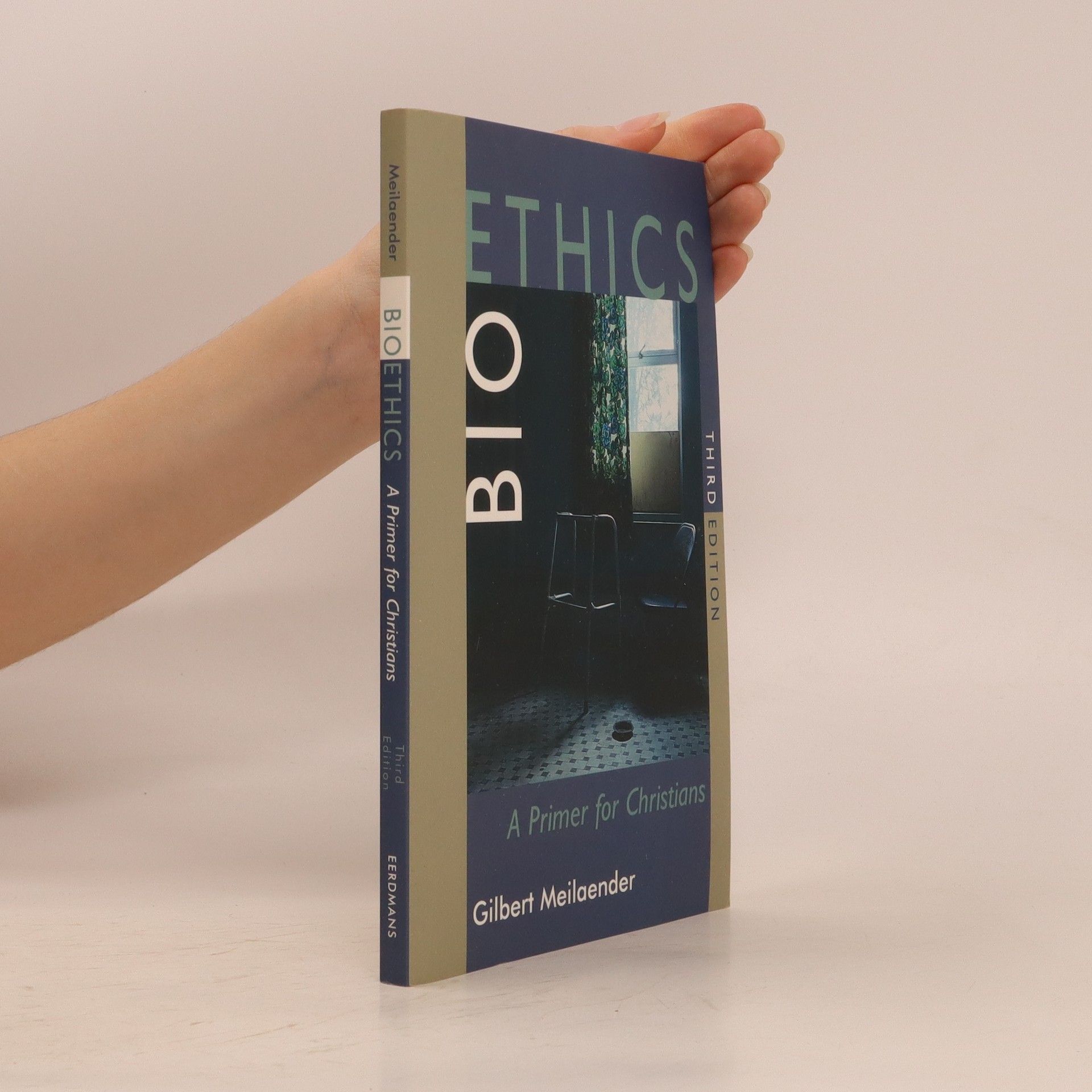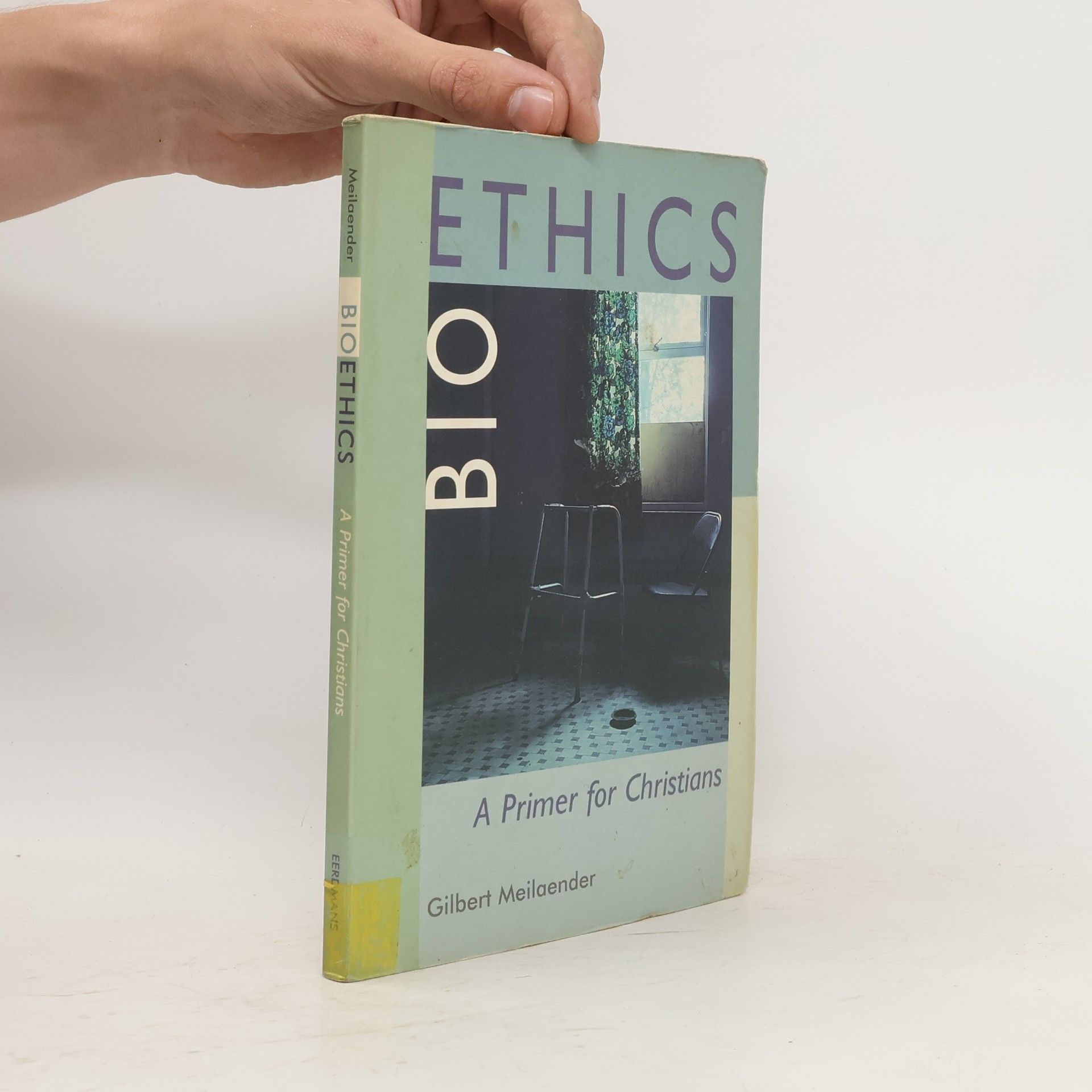Meilander explores from a Christian standpoint questions related to such issues as assisted reproduction, abortion, gene therapy, prenatal screening, euthanasia, organ donation and other bioethical matters.
Gilbert Meilaender Bücher



Bioethics : a primer for Christians
- 152 Seiten
- 6 Lesestunden
Christian vision -- Procreation versus reproduction -- Abortion -- Genetic advance -- Prenatal screening -- Suicide and euthanasia -- Refusing treatment -- Who decides? -- Gifts of the body: organ donation -- Gifts of the body: human experimentation -- Embryos: the smallest of research subjects -- Sickness and health.
Bioethics and the Character of Human Life
- 192 Seiten
- 7 Lesestunden
Exploring bioethical issues through a humanistic lens, the essays invite readers to engage with profound questions that intertwine with religious and metaphysical themes. Drawing from personal experiences on the President's Council on Bioethics, the author examines the implications of Christian trinitarian teaching on personhood, addressing topics from the beginning to the end of life. This collection encourages thoughtful reflection on matters that hold essential significance for humanity.